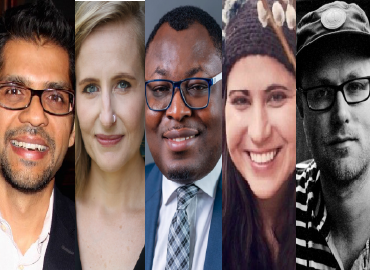 This year, we welcomed CrimSL’s five post-doctoral fellows who shared their current work and research with the CrimSL community in a series of virtual seminars.
This year, we welcomed CrimSL’s five post-doctoral fellows who shared their current work and research with the CrimSL community in a series of virtual seminars.
Dr. Fahad Ahmad kicked off the series on November 21 by leading a discussion on Contesting Power: A Comparison of Muslim Civil Society Responses to Counter-radicalization Policies in Canada and the UK. He compared cases of counter-radicalization in Canada and the U.K. to reveal how Muslim civil society organizations can use their agentic power to engage in meaningful conversations toward emancipatory goals.
On March 4, Dr. Jennifer Peirce opened the Post-Doctoral Fellow Talk series for the winter term. In her presentation, she shared her research about the perceptions of prison life and reforms in the Dominican Republic’s traditional and new prisons. She included an analysis of its new prison management model and how it impacted incarcerated persons.
On March 11, Dr. Kelsi Barkway presented on Surveillance Potential and discussed how unbanked social assistance recipients in Toronto negotiated a mandatory transition from cash to cards. In her presentation, she looked into how digital money can e conceived as a tool for social control and how people respond to this shift.
On March 25, Dr. Ayodele Akenroye discussed how the identity of international criminal law could integrate African Laws, spirituality, and norms. In his talk, he used the ICC’s conviction of Dominic Ongwen as a case where integrating African laws can be present.
On April 8, Dr. Trevor Wideman closed off the Post-Doctoral Fellow Talk Series by exploring land use challenges in large urban areas, such as Toronto and Vancouver and the logic of supply. Based on his current work, he examined how housing advocates exploit, subvert, or push against municipal planning and governance, and its effects on residential development.
Thank you for joining us for this year’s Post-Doctoral Fellow Talk series. We look forward to seeing you in next year’s programming.
Next: The Research Cluster for the Study of Racism and Inequality


